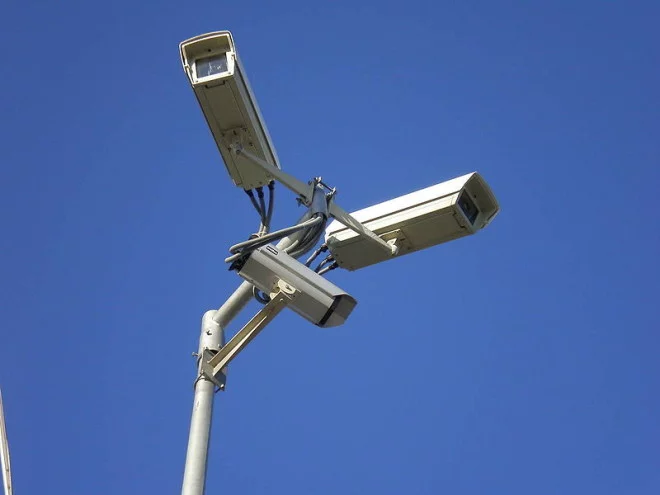
Vietnam Swatted More Viciously Than China by America’s Lofty Human Rights Measuring Stick
(China) on 8 August 2015
by (link to original)
America has likewise also debated the topic of human rights with China. However, when Kerry comes to China, he never speaks about human rights as openly. When American leaders visit China, they choose their words with great care when discussing this subject and only bring it up in passing in a very lengthy laundry list of other topics. Only when they are alone in front of the Western media do American leaders stress that they “discussed human rights.”
During Kerry’s time discussing human rights in Hanoi, he stated, “Progress on human rights and the rule of law will provide the foundation for a deeper and more sustainable strategy and strategic partnership between America and Vietnam ... Only you can decide the pace and direction of this process of building this partnership.” There is an air of coercion, and a certain chiding and even threatening tone to the message.
Apparently in U.S.-Vietnam relations, human rights issues are much weightier than they are in Sino-U.S. relations. Hanoi is facing extreme, long-term pressure from Washington. Vietnam is a country that carries very little weight in the world. Its “liberalization” genes may be fairly strong, but whether or not Hanoi can manage this problem is going to be a long-term challenge.
The French colonized Vietnam for an extended period, and the Vietnam War split the country into north and south regimes with the southern regime under America’s direct control. After the Communist-governed north broke through into the south, waves of South Vietnamese emigrated to the United States, forming today’s extensive, influential and very vocal anti-Communist Party of Vietnam force. Inside today’s Vietnam, there is still an intangible but very real dividing line between the north and south. What’s more, in dealing with the potentially fatal problem of overseas forces penetrating the country, Hanoi cannot loosen its reins, not even for a moment.
Current American strategy necessitates the inclusion of Vietnam, which will lead America to relax the political pressure that it puts on the country. The thing is, American society cannot refrain from interfering in Vietnamese politics. Vietnam’s domestic anti-government forces, as well as external anti-CPV forces, have their own independent lines already etched into the sand. Those same forces will exploit the South China Sea dispute between China and Vietnam, as well as American pressure about human rights for their own political aims. In this complex political game, Hanoi wishes it could be both actor and director, which seems like a good idea, but is exceedingly difficult to realize.
When seeing the world through the eyes of many different nations’ experience, and in the wake of the deepening communication between Vietnam and the U.S., it is quite possible that those in Vietnam who oppose the system will gradually grow in strength and number. Due to the fact that Hanoi is weak when staring down Washington, it will be a major test of its strength to see if it dares take strong and forceful measures to maintain social stability, even in spite of Washington. If the rebels within the country exercise power and seize momentum, when Washington has to make a choice between supporting the rebels or the CPV government, it goes without saying what Washington will ultimately do.
Vietnam’s long-term political stability depends on the legitimacy provided to it by the success of China’s political line, which is determined by the intricacy of the current setup of Sino-Vietnam and U.S.-Vietnam relations. Geopolitical factors are not the sole compass for handling relations between the two great nations; Vietnam must make its own successful contribution to the mutual success of Sino-Vietnamese politics.
The current pressure imposed by the South China Sea issue and the new trend toward closer ties between Vietnam and the U.S. have misled many to think that the new strategic axis of Hanoi’s foreign policy will be “ally with America to resist China.” Actually, Vietnam has a deep strategic need to maintain an “ally with China to resist America” stance for the long term. If Vietnam becomes a lone boat navigating the tides of globalization, then it is very possible that it will have to endure the wild tempests and frothy waves brought about by America and the West that will slap it to and fro.
Even though Sino-Vietnam relations have been shaken seriously by the South China Sea dispute, Chinese society should take the differences between the two nations on an issue-by-issue basis and not let its bilateral relations dissolve into a “South China Sea dogma.” China cannot lose the Spratly Islands, just like we cannot lose the whole of Vietnam in the drama surrounding the Southeast Asian nation power struggle and the whole host of political maneuvering that comes with it. If one day Vietnam totally becomes a pawn in America’s grand strategic scheme, then that would be a terrible disgrace upon the good name of China.
China should be magnanimous in welcoming the change in U.S.-Vietnam relations, while at the same time it should use the strengthening of political and economic cooperation to balance out the negative geopolitical ramifications that an intensification of U.S.-Vietnam relations may bring. China and other surrounding nations have their own territorial disputes, which is a problem that history has placed in our lap. Contemporary China must be able to get a handle on this problem, while at the same time it must not be consumed by our present strategic resilience and vital energy. Modern China must have the breadth of mind and ability to do this.

